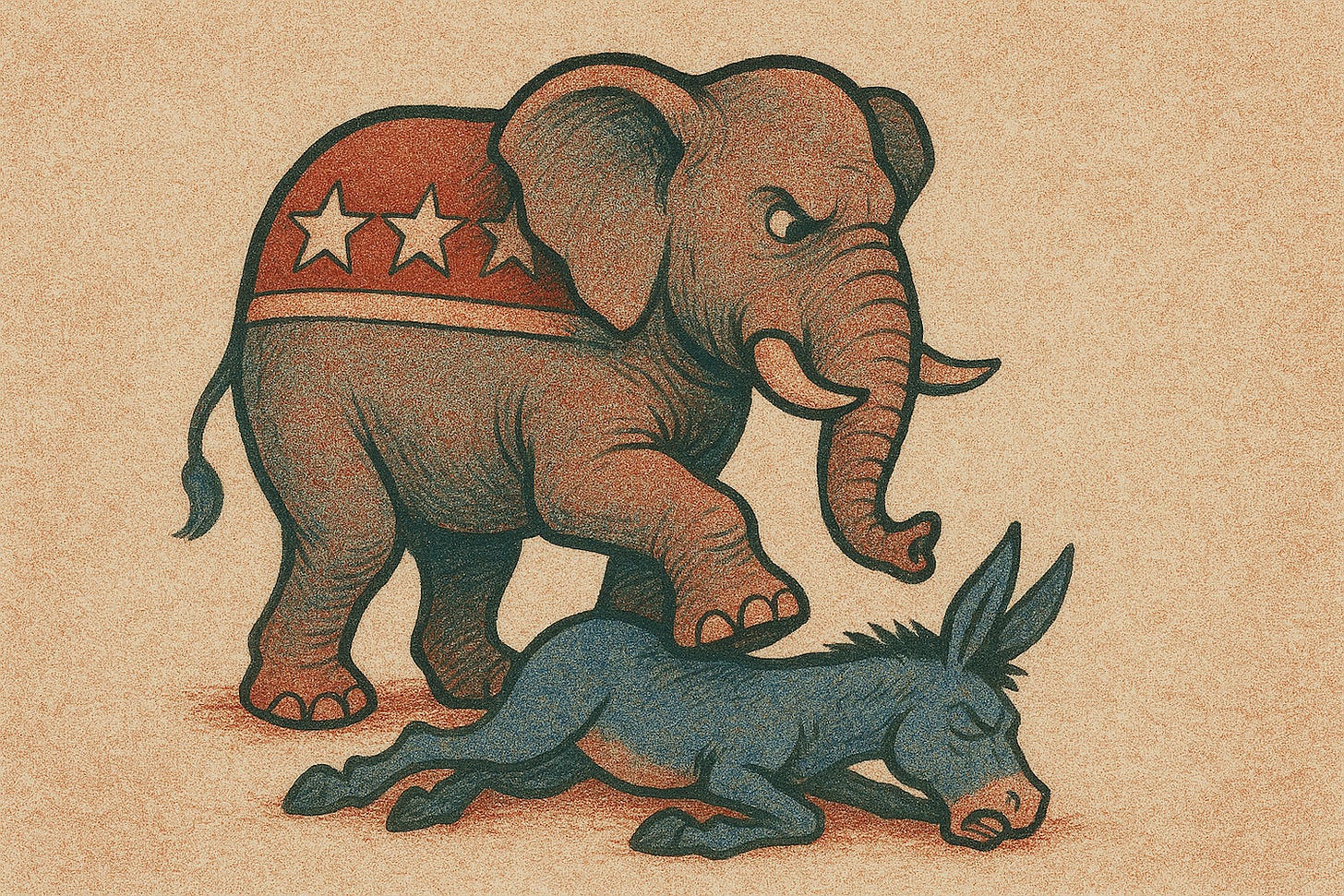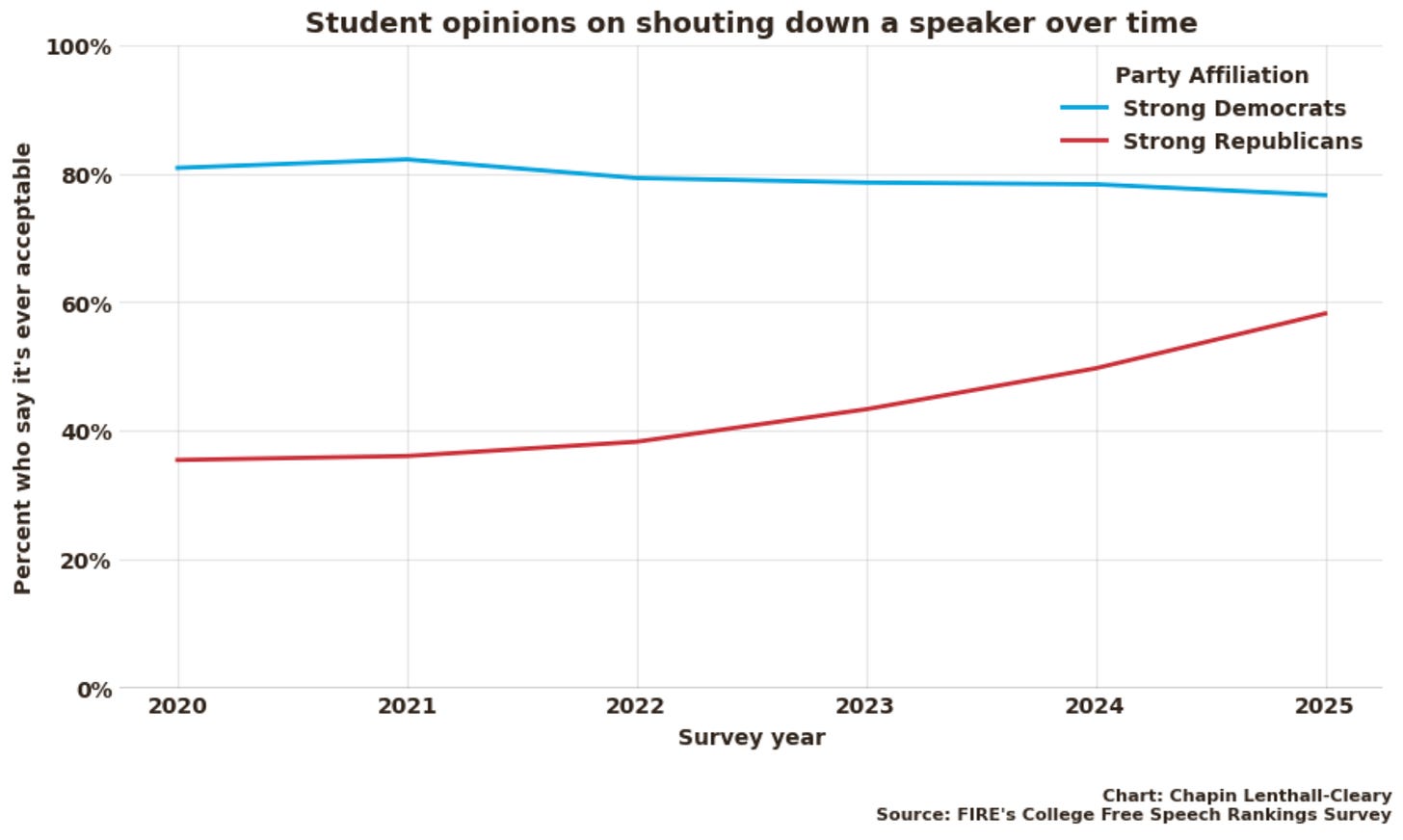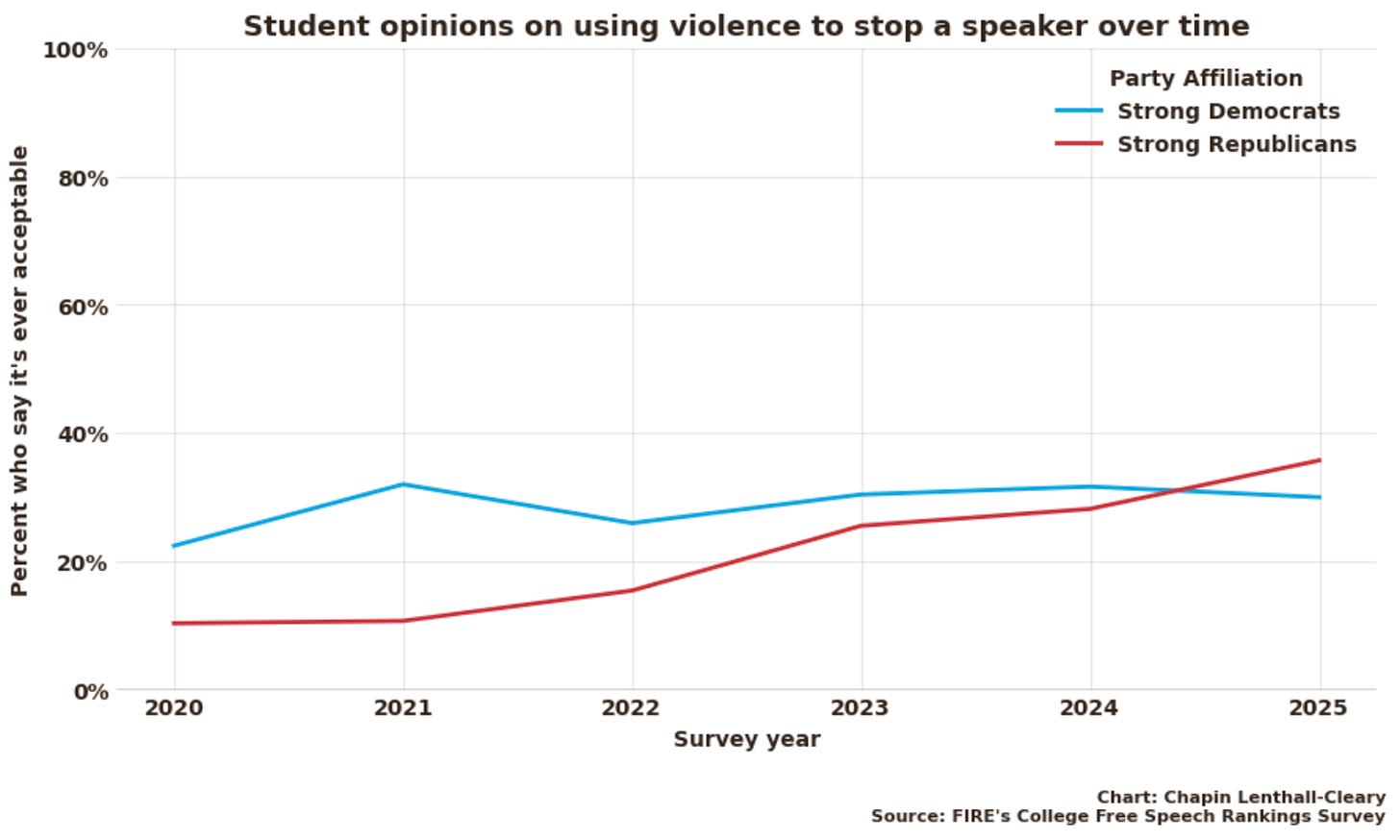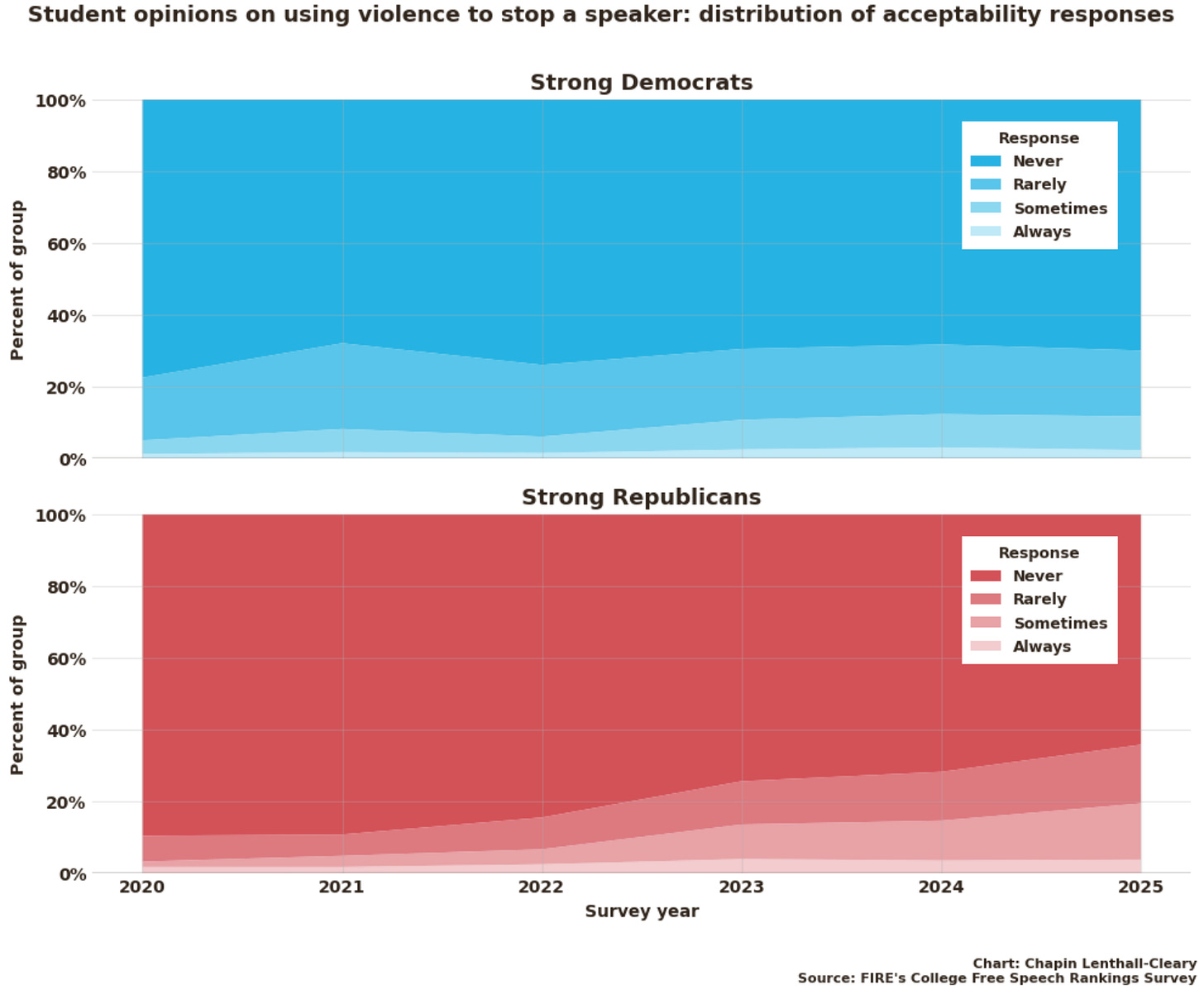One big, happy, censorial family
From shouting down speakers to blocking access to events, Republican students are starting to embrace methods long preferred by the left.
For those who’ve followed FIRE’s work since 1999, it’s no secret that universities have harbored (and often advanced) illiberal and censorial attitudes, and the problem has worsened over the last decade. For students uninterested in winning debates by the merits of their ideas, a popular tactic has been shouting down speakers — known as the “heckler’s veto” — to prevent others from hearing. Some students have also physically blocked others from reaching speakers, and in extreme cases even used violence against speakers, though these are seemingly rarer.
In our 2026 College Free Speech Rankings Survey (2025 data), FIRE measures student attitudes towards these disruptive tactics by asking students how often, if ever, it’s acceptable to engage in these tactics. 73% of students say that these tactics are at least rarely acceptable.
Until recently, these vices primarily belonged to Democratic students, with a staggering 79% of students who identify as strong Democrats agreeing that shouting down a speaker is at least rarely acceptable. Republicans have finally, perhaps belatedly, arrived at the party, with over half of strong Republicans now saying it’s acceptable to shout down a speaker. And, in 2025, strong Republicans passed strong Democrats in support for using violence to shout down a speaker.
Beyond the obvious, a couple interesting notes here. Republicans seem to be overall less interested in disruptions (though this gap is narrowing quickly), but they tend to favor more aggressive tactics more than Democrats. We can also break this data down by separating rarely, sometimes, and always acceptable:
Most strong Democrats who endorse using violence to stop a speaker say it’s only acceptable to do so rarely. Strong Republicans, on the other hand, are about evenly split between rarely and sometimes. Combined, these two results suggest that Republican students are still overall less interested in disruption, but when they are interested, they’re really interested. And they’re a lot more interested than they were a few years ago.







